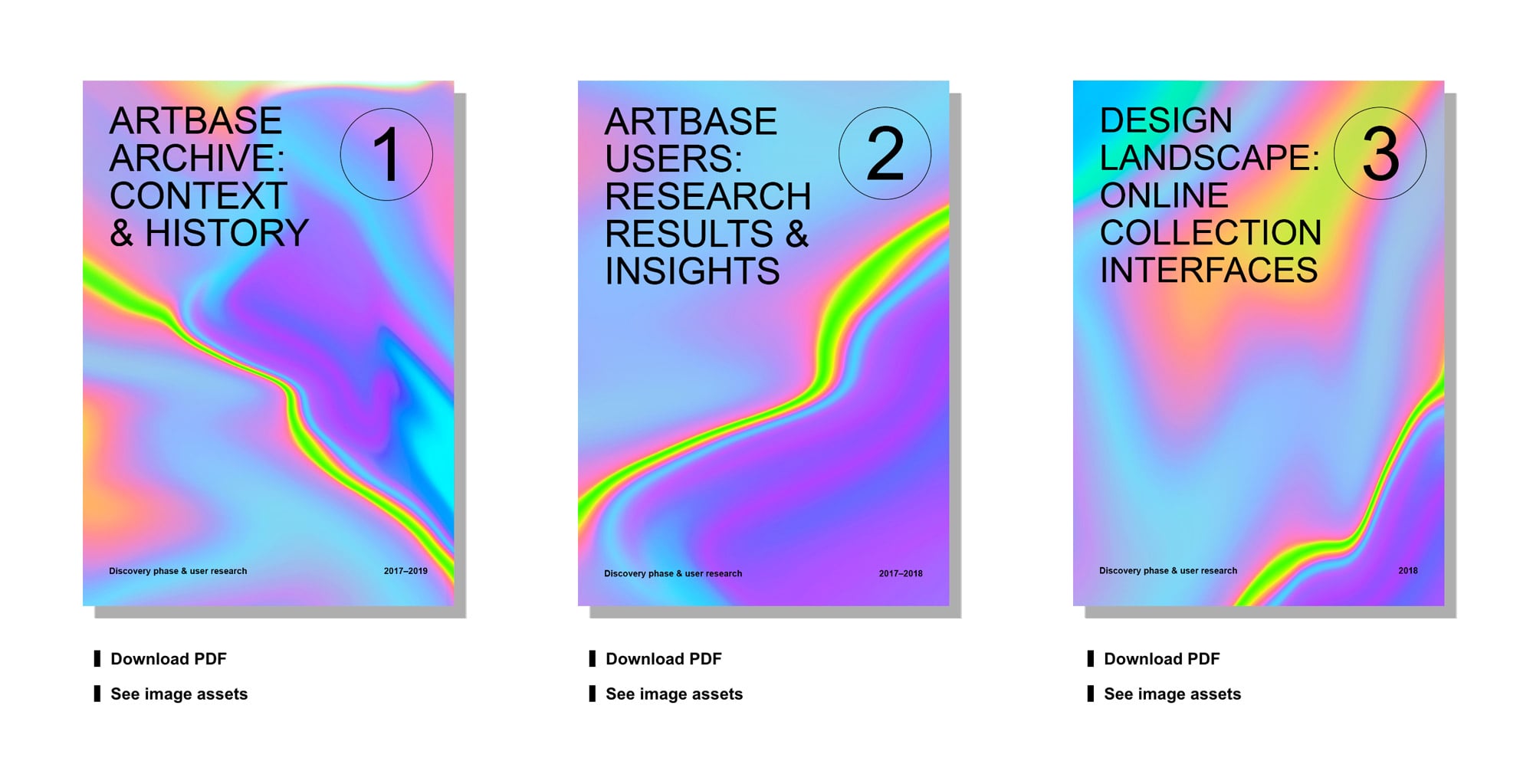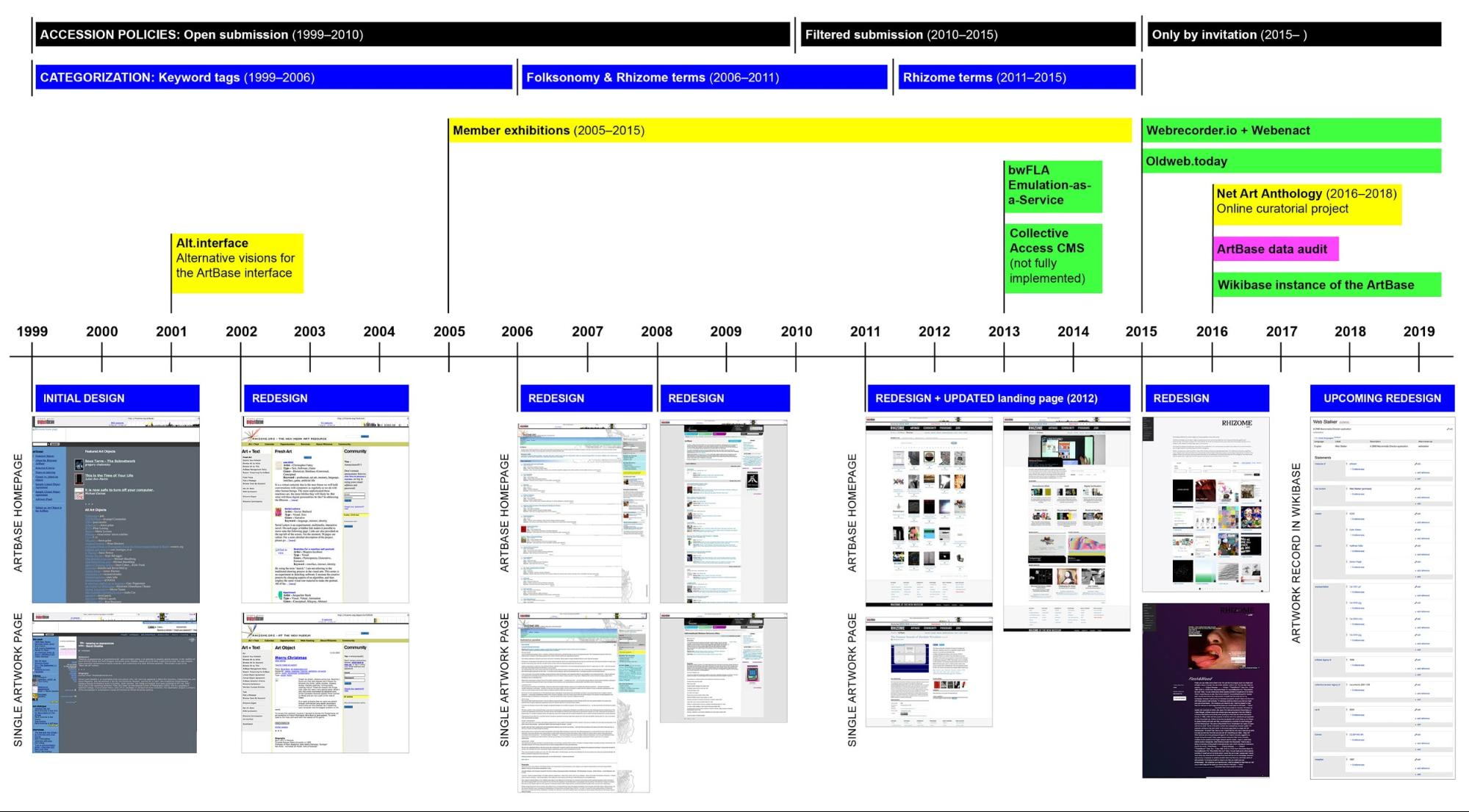Artbase redesign research by Lozana Rossenova is now available online.
Established in 1999, the Rhizome ArtBase is an international and diverse archive with over 2200 artworks, primarily works of net art. With its expansion in size and scope as well as complexity over the past 20 years, the commitment to preservation of the works in the ArtBase has become an increasingly conscious effort at Rhizome.
Rhizome’s ArtBase, and its associated history of curatorial and preservation activities, opens up multiple sets of questions closely connected to the issue of defining what constitutes the networked art object in an online archive. Unlike the containable formats of linear text-, image-, or video-based media, net art works are not single digital objects, but rather assemblages, dependent on specific software environments and presence of cultural practices to be performed. These particular properties add complexity to the efforts of any institution to collect, preserve, and make such works readily accessible to the public.
In 2016, the ArtBase became the main focus of a collaborative doctoral project between Rhizome and the Centre for the Study of the Networked Image at London South Bank University. The practice-based PhD project seeks to contribute new knowledge to the field of online archive design for born-digital cultural heritage by addressing the question of how archived web-based works can be made accessible to the public in their primary context, online. The lead researcher of the project, designer Lozana Rossenova, took an embedded position at Rhizome between 2016–2020 in order to work closely with Rhizome’s preservation team, and the wider Rhizome community, towards prototyping and iteratively developing a new data model and interface design framework for the archive.
Throughout the research and design phases of this project, various documentation materials and design resources were gathered, organized and prepared for publication, to be shared with Rhizome’s in-house team, as well as the wider community of interested cultural heritage practitioners. In tandem with Rhizome’s broader initiative to open up the “black boxes” of institutional practice and research, these documents are going to be released gradually over the course of summer/fall 2020. All resources will be available at https://sites.rhizome.org/artbase-re-design/

By making drafts, test cases, pilot studies and other details from the research process open for scrutiny, Rossenova’s aim is to share lessons learned, but also to stimulate discussion around the more challenging questions of access and preservation of complex born digital culture.
The initial set of resources to be published includes a series of reports. The reports trace the development of the project’s participatory, interaction design approach, starting with a Discovery and User Research phase. Discovery and User Research includes a study of the organizational context and history (report #1), information gathering around past and current use-cases and user expectations (report #2), and review of the contemporary landscape of digital design for cultural heritage archives and collections (report #3).
The next phase, Design Exploration, which includes sketches and prototypes and continuing the conversations with users, will be documented in report #4. Report #5 documents the final two phases of the process, Design Specification and Evaluation, wherein the initial design proposals are transformed into concrete design specifications and recommendations, alongside a functional prototype, which can be evaluated by users.
The first report is already available to download as a PDF. This week, a new section of report #3 is also available for download, providing an overview of several common patterns of interface design for online net art exhibitions.
More accessible HTML versions of the reports’ contents will also be added to the site later in the summer. Following the reports, the final sets of materials to be released will include annotated versions of the new ArtBase interface prototypes and underlying data model.
Rhizome’s knowledge-sharing related to born-digital cultural practices is supported by John S. and James L. Knight Foundation. Rossenova’s research is made possible through funding by the AHRC in the UK and additional support by Rhizome.


